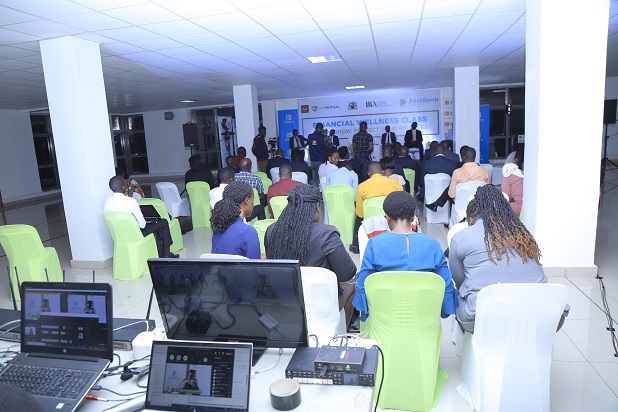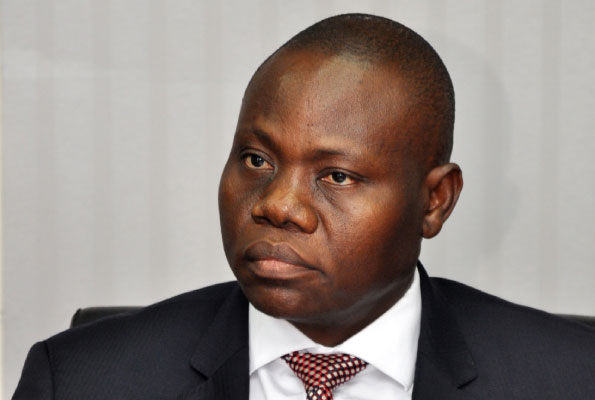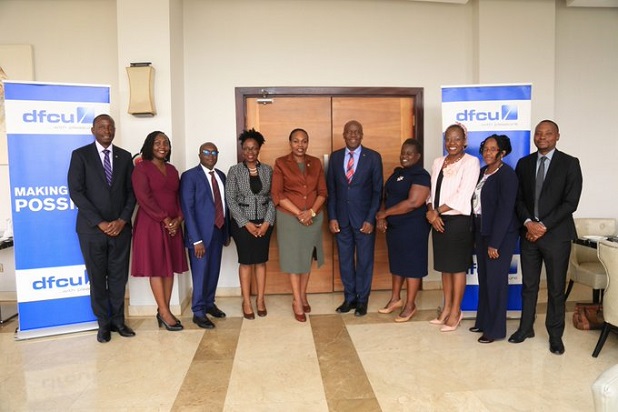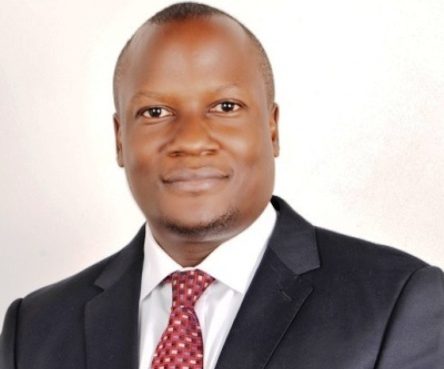Participants listening attentively to panelists
PostBank is taking up the lead in carrying out financial literacy training mainly targeting young people in a bid to embrace savings for the long term.
On Wednesday ,the Bank and its partners UAP, Bank of Uganda and Uganda Insurers Association convened a financial wellness class at Nakawa Business Park with the aim of aiding participants to learn, grow and protect their finances.
Speaking on the sidelines of the session, PostBank Chief Executive Officer, Julius Kakeeto told Business Focus: “We do a lot of sessions around financial literacy, financial wellness and the difference today is that we have partnered with UAP to focus a lot on financial wellness and saving for the long term and what is lacking a lot in our society is information. We believe forums like this can help secure the future for a lot of young Ugandans out there.”

During the session, it came out clearly that many young people are not into savings.
“We were taught how do to do thing, not what to do. This leads to shortcuts. How can we create a legacy and pass it on to the next generation? We have short term view of things. We don’t save. We start saving at 40. People get mortgage as soon as we get a job. All of us are victims of brick and mortar. It’s (brick and mortar) not the only investment tool,” Prof. Samuel Sejjaaka, an accountant, academic and businessman, said.
He added: “There are Equities, Treasury Bills and Bonds but it all starts with the kind of education we obtained. So, now, how do we catch the young ones early?”

According to Kakeeto, Post Bank has 53 branches across the country and these are supported by 14 mobile vans (a moving bank which goes deeper into the rural areas), ATMs, 400 banking agents and phone banking among others, which he says should be able to aid saving.
Post Bank Executive Director, Andrew Kabeera says that the kind of communication the bank is carrying out currently is tailored to catch the youth.
“Let’s focus on the young people. Let’s focus on the generation behind us. They will save,” Kabeera said.
Uganda’s population is 70% young but Kakeeto says “it’s not easy to change this generation.”
“The difference is that the Indian or Jewish community learn these saving products early (before the age of 21). We need to help the young generation adopt saving culture,” Kakeeto says.
To encourage savings culture, Jonan Kisakye, the Chief Executive Office at Uganda Insurers Association says one should consider taking up an insurance policy.
“If you want to save and invest, insurance is the answer,” Kisakye said.
“Act on the knowledge you have received. Plan. Take on an insurance policy. Before you start on anything, you should have planned. Use your time profitably. Invest wisely. Think,” Kisakye adds.
Talking investment, Sejjaaka says there is a need to learn.
“A lot of us get into business because we have heard somebody talk about it. You get into something and put all your hard-earned savings in it before learning. There are so many intricacies about what people want to do. Can you take time and learn? Don’t invest in what you don’t understand. Learn,” Sejjaaka added.
Gloria Tuhaise, a financial literacy trainer at the Bank of Uganda, agrees with Sejjaaka.
“Invest in knowledge,” Tuhaise says, adding that you can only prosper in what you are passionate about, not because someone is doing well in a particular area.
Tonny Mudola, the Ag. Managing Director, UAP Old Mutual said: “Give the right financial literacy knowledge. Catch them when they are still young.”





